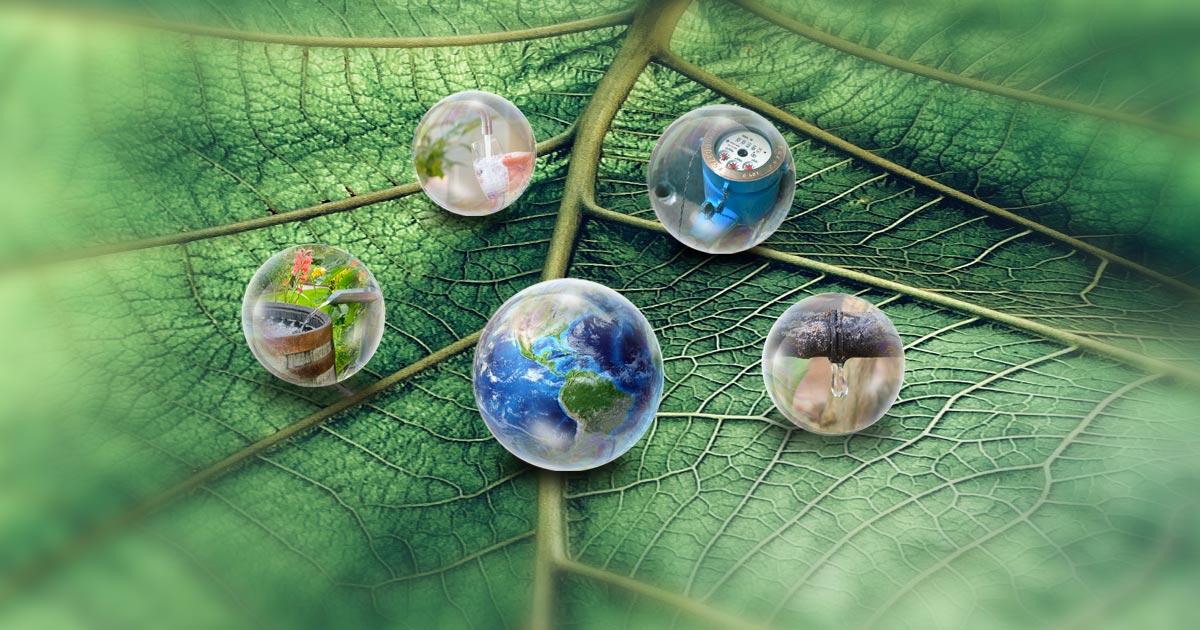10 Essential Water Management Techniques for a Sustainable Future

Water is a precious resource, and the demand for clean and usable water increases as the global population grows. This has led to the need for effective water management techniques to ensure that this vital resource is used sustainably and efficiently. In this article, we will discuss what water management is and explore 10 methods of water management that can help conserve water and protect our environment.
What is Water Management?
Water management refers to systematically planning, developing, distributing, and optimizing water resources to meet the various demands of human activities and ecosystems. It comprises diverse strategies, tactics, and technologies to ensure the long-term use of water resources while reducing environmental impacts.
Water management techniques aim to address water scarcity, pollution, and wastage, ensuring that all stakeholders have access to clean and safe water.
10 Water Management Techniques
Here are some of the water management techniques:
1. Rainwater Harvesting
Rainwater harvesting is a simple yet effective method of water management that involves collecting and storing rainwater for later use. This method can help reduce the demand for municipal water supplies and decrease the risk of flooding by reducing stormwater runoff. Rainwater can be collected using rooftop catchment systems, rain barrels, or larger cisterns for irrigation, flushing toilets, and even for drinking if adequately treated.
2. Drip Irrigation
Drip irrigation is a very efficient way of watering plants that involves sending water directly to the plant’s root zone via a network of pipes and emitters. This technique minimizes water wastage by reducing evaporation and runoff, allowing for more precise control over the amount of water used. Drip irrigation is particularly useful in arid regions where water is scarce and can significantly improve crop yields while conserving water resources.
3. Greywater Recycling
Greywater refers to the wastewater generated from domestic activities such as washing dishes, laundry, and bathing. This entails collecting and processing non-potable water for reuse in irrigation, toilet flushing, and outdoor cleaning. This technology saves water and lowers wastewater discharge into the environment.
4. Smart Water Meters
Smart water meters are advanced devices that accurately measure and monitor water consumption in real-time. These meters can help identify leaks, promote water conservation, and provide consumers and utilities with valuable data. By providing detailed information on water usage patterns, smart water meters can encourage more efficient use of water resources and help reduce waste.
5. Watershed Management
Watershed management is a holistic approach to managing water resources by focusing on the entire watershed or drainage basin. This technique involves assessing the natural processes within a watershed, such as precipitation, runoff, and evapotranspiration, and implementing various conservation measures to protect and enhance water quality and quantity. Land-use planning, erosion control, wetland restoration, and stormwater management are all examples of watershed management practices.
6. Artificial Recharge of Groundwater
Groundwater depletion is a significant concern in many parts of the world due to excessive extraction for agriculture, industry, and domestic use. Artificial groundwater recharge involves replenishing aquifers by introducing surface water through infiltration basins, recharge wells, or spreading techniques. This strategy can assist in increasing groundwater storage, improving water quality, and mitigating the effects of droughts and climate change.
7. Water-efficient Appliances & Fixtures
Water-efficient appliances and fixtures are a simple yet effective way to conserve water in households and businesses. Low-flow faucets, showerheads, toilets, and energy-efficient dishwashers and washing machines can significantly reduce water consumption without compromising performance. In addition to conserving water, these devices can lower energy bills and reduce the burden on wastewater treatment facilities.
8. Water Pricing & Regulations
Appropriate water pricing and regulatory measures can promote more efficient use of water resources and discourage wastage. Water pricing strategies may include increasing block tariffs, which charge higher rates for higher levels of consumption, or seasonal pricing that reflects the availability of water resources. Regulatory measures may involve setting water allocation limits, implementing water-saving targets, or mandating water-efficient technologies.
9. Public Awareness & Education
Raising public awareness and promoting education on water conservation and management techniques are essential to any water management strategy. Public campaigns, school programs, and community workshops can inform people about the importance of water conservation, encourage behavior change, and foster a culture of water stewardship. Engaging stakeholders in water management decisions can also improve the effectiveness of policies and promote greater accountability.
10. Integrated Water Resources Management (IWRM)
IWRM (Integrated Water Resources Management) is a comprehensive approach to water management that considers the interdependence of various water uses, users, and ecosystems. IWRM seeks to balance social, economic, and environmental goals by encouraging fair and sustainable use of water resources. This approach involves stakeholder participation, cross-sectoral coordination, and adaptive management to address the complex challenges associated with water management.
Start Adapting the Water Management Techniques!
Effective water management techniques are crucial for ensuring the sustainable use of our precious water resources. By combining these methods, we can conserve water, protect ecosystems, and provide all stakeholders with clean and safe water.
As the global population continues to expand, the water demand will inevitably increase, placing additional stress on our already limited water resources. Additionally, climate change is expected to exacerbate water scarcity issues with changing precipitation patterns, increased evaporation rates, and more frequent extreme weather events. In this context, adopting innovative and integrated water management strategies becomes even more vital for safeguarding our most essential resource.
To tackle these challenges, governments, businesses, and communities must collaborate to develop and implement comprehensive water management plans. This may involve investing in advanced technologies, enacting supportive policies and regulations, and promoting public awareness and education on water conservation practices.
Furthermore, regular monitoring and assessment of water management techniques are necessary to ensure their effectiveness and adapt them to evolving circumstances. By staying proactive and committed to sustainable water management, we can secure the long-term availability of clean and safe water for current and future generations while preserving the health of our ecosystems.
